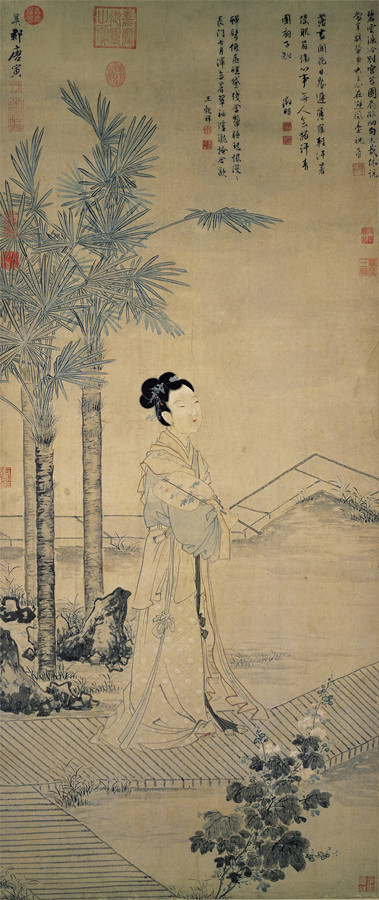China: Ming Dynasty gold-filled tomb of concubine-turned-political leader discovered

The 500-year-old gold-filled tomb of a concubine turned military strategist has been discovered in Nanjing, China.
Lady Mei lived during the Ming Dynasty and the story of her life has been told through two stone epitaphs found inside the tomb, Live Science reports.
Originally uncovered in 2008, the epitaphs have now been translated and published in the journal Chinese Cultural Relics.
They tell how Lady Mei was an "unwashed and unkempt" woman who dubbed herself a "survivor".
Archaeologists say she was born around 1430 and was one of three wives of Mu Bin, a Duke of Qian who ruled Yunnan. She would have wed at 15 to the duke, who was 30 years her senior: "Lady Mei was probably a concubine whom he married after he went to guard and rule Yunnan," the researchers said.
However, the epitaphs tell how her life was transformed at 21 after giving birth to a son, who was just 10 months old when his father, the duke, died. Taking control of the young duke's upbringing, "she raised the third-generation duke. She managed the family with strong discipline and diligence, and kept the internal domestic affairs in great order, and no one had any complaint," the epitaphs say.
"[She] urged him to study hard mornings and evenings, and taught him loyalty and filial devotion, as well as services of duty."
When her son came of age, he was charged with taking control of Yunnan and Lady Mei was given the title of Dowager Duchess. She became heavily involved in advising the duke
"The Dowager Duchess would always talk to the third-generation duke about her loyalty to the emperor, and kind concerns for the people under the rule of the departed former duke, and strategies for bringing peace to the barbarian tribes and pacifying faraway lands," they read.
She died at 45 of an illness and was brought to Nanjing for burial, where her tomb was filled with gold bracelets, a gold fragrance box, gold hairpins and gemstones.
"On the day of her death, the people of Yunnan, military servicemen or civilians, old and young, all mourned and grieved for her as if their own parents had passed away," the epitaphs said.
© Copyright IBTimes 2025. All rights reserved.






















